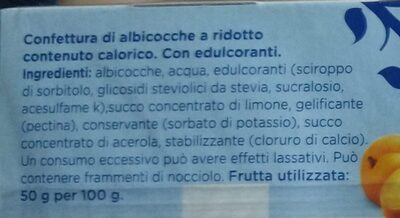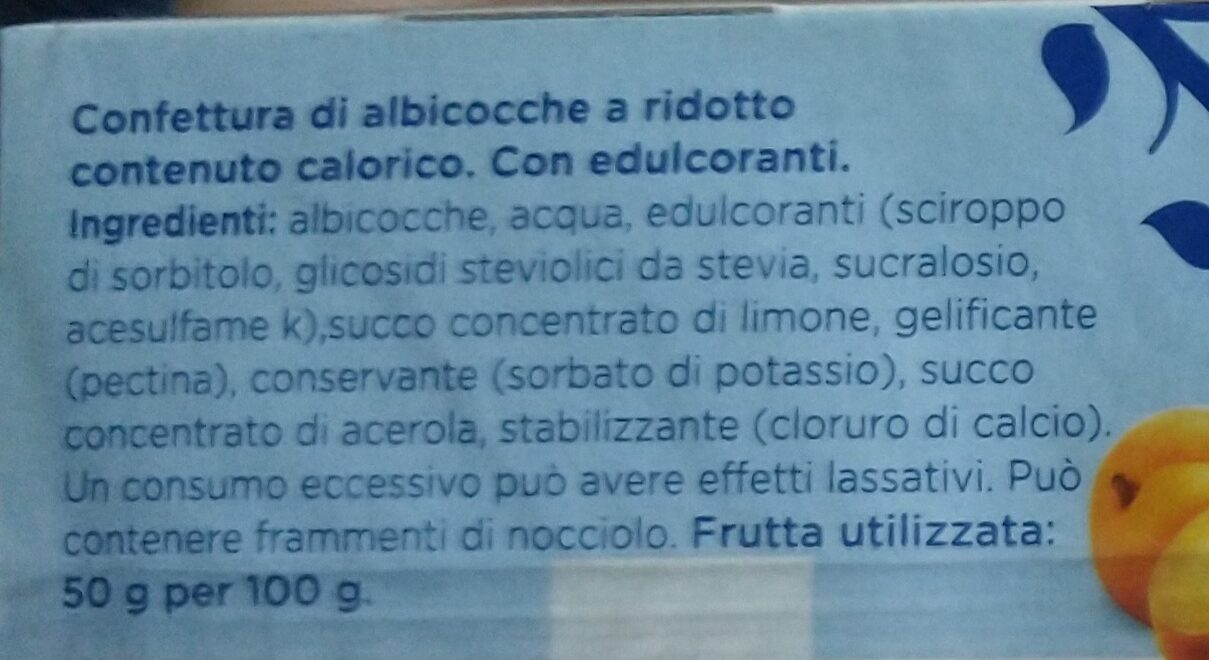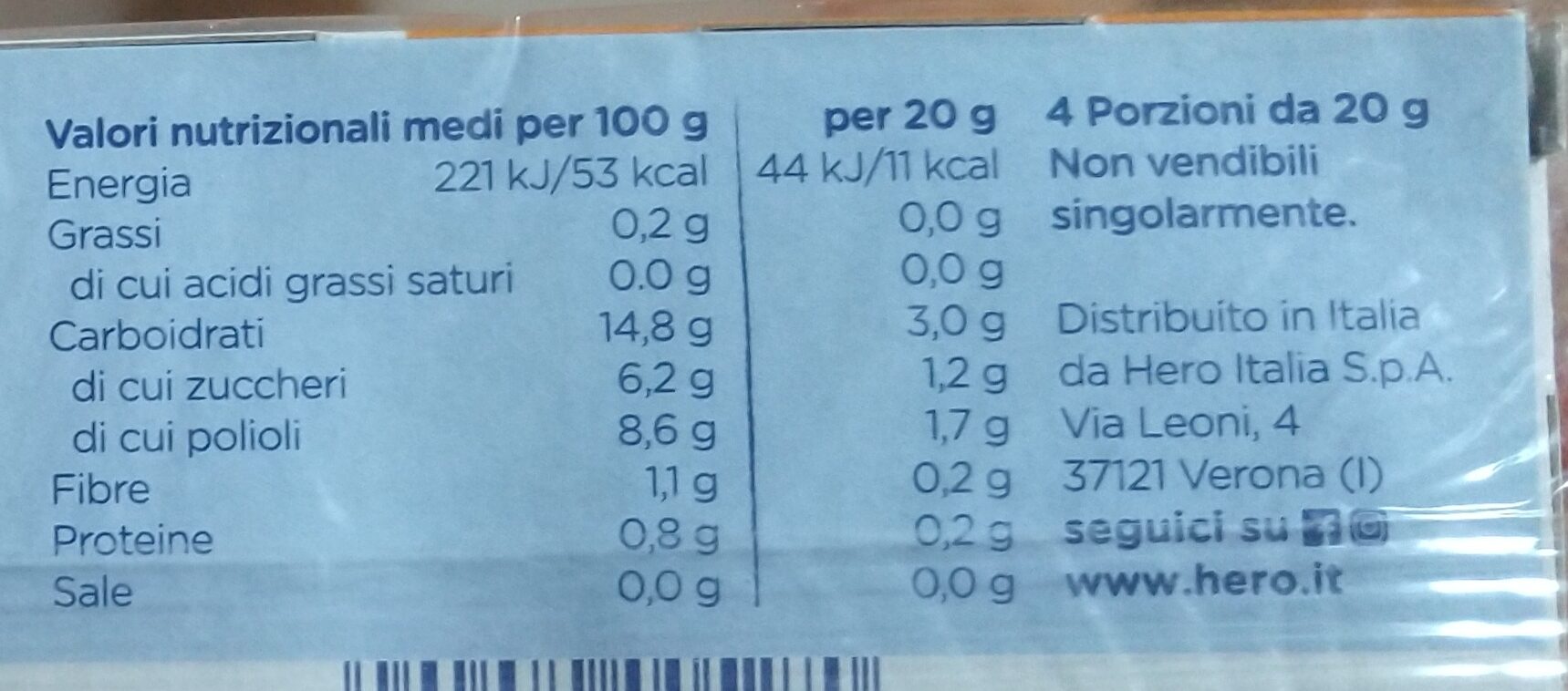Confettura albicocca - Hero - 4 x 20 g
This product page is not complete. You can help to complete it by editing it and adding more data from the photos we have, or by taking more photos using the app for Android or iPhone/iPad. Thank you!
×
Barcode: 8000080005270 (EAN / EAN-13)
Quantity: 4 x 20 g
Brands: Hero
Categories: Plant-based foods and beverages, Plant-based foods, Breakfasts, Spreads, Plant-based spreads, Sweet spreads, Fruit and vegetable preserves, Jams, Apricot jams
Labels, certifications, awards: No added sugar
Countries where sold: Italy
Matching with your preferences
Report a problem
Data sources
Product added on by kiliweb
Last edit of product page on by moon-rabbit.
Product page also edited by annelotte, roboto-app, telperion87, yuka.sY2b0xO6T85zoF3NwEKvll1GDt3SoiPdFTflx3OW6eafHIz2buNO8LbAA6s.
Last check of product page on by telperion87.
If the data is incomplete or incorrect, you can complete or correct it by editing this page.












